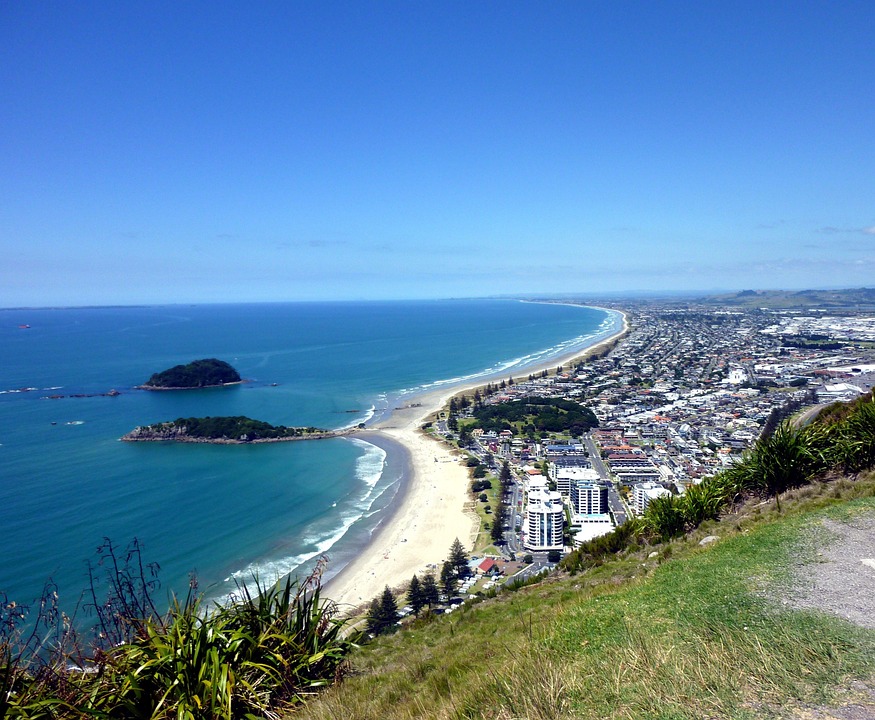
Tauranga / Bay of Plenty
Tauranga, located along the picturesque coastline of the Bay of Plenty, is New Zealand's fifth-largest city, known for its desirable beach vibe. The city is surrounded by stunning beaches, including the unique Mount Maunganui (often referred to as The Mount) and Papamoa.
Cultural and Demographic Richness
Tauranga is home to a diverse and growing population, with over 150,000 residents as of the latest estimates. The local iwi, Ngāi Te Rangi, Ngāti Ranginui, and Ngāti Pūkenga, play a vital role in preserving the area’s Māori heritage, offering newcomers an opportunity to learn and connect with the indigenous culture. The city’s demographics reflect a balance between young families, working professionals, and retirees, creating a dynamic and inclusive community.
Climate , Lifestyle and Leisure
Tauranga enjoys a temperate maritime climate, characterised by warm summers and mild winters, making it ideal for outdoor activities year-round. The city's beaches, such as Mount Maunganui, are famous for their golden sands and world-class surfing, attracting water sports enthusiasts and sunseekers alike. Beyond the coastline, Tauranga offers lush parks, hiking trails, and the nearby Kaimai Ranges, providing opportunities for leisure and adventure.
Sport and leisure are integral to Tauranga’s identity. Whether you’re a fan of rugby, cricket, or golf, or prefer activities like mountain biking and kayaking, there is something for everyone.
Tauranga is also known for its cultural scene, hosting various festivals and events throughout the year. Highlights include the National Jazz Festival, the Tauranga Arts Festival, and the Bay of Plenty Garden and Art Festival.
Housing and Living Costs
Tauranga’s property market provides a range of options, from modern apartments to spacious suburban homes. Prices, though slightly higher than in some smaller towns, are often more attainable than in larger cities like Auckland or Wellington. This balance between lifestyle and cost makes Tauranga an appealing choice for many.
Economic and Educational Opportunities, Airport
Tauranga's primary industries include agriculture, horticulture (particularly kiwifruit and avocados) , forestry, and tourism. The busy port is also a significant industry. The city also has several manufacturing and service industries, including healthcare, education, and retail. Additionally, the city’s growing tech and creative sectors offer opportunities in emerging industries .
For families, Tauranga boasts a robust education system with excellent primary, secondary, and tertiary institutions, such as Toi Ohomai Institute of Technology. The nearest university is the University of Waikato, which has a campus in nearby Hamilton and a satellite campus in Tauranga.
Tauranga Airport, offers domestic flights primarily connecting Tauranga to major cities like Auckland, Wellington, and Christchurch
Advantages and Disadvantages of Immigrating to Tauranga
Advantages:
- Natural landscapes, beaches and easy access to sporting and other outdoor activities
- Mild climate and relaxed lifestyle.
- Strong sense of community and cultural heritage.
- Growing job market and economic opportunities.
- High-quality education and family-friendly amenities.
- Offers a regional airport
Disadvantages:
- Housing prices, though competitive, are higher than the national average.
- Limited public transportation options compared to larger cities.
- Smaller urban area with fewer entertainment venues.
Tauranga psychologists may work in the healthcare, justice, education, and child protection sectors. Let us know if Tauranga is the right location for you.


